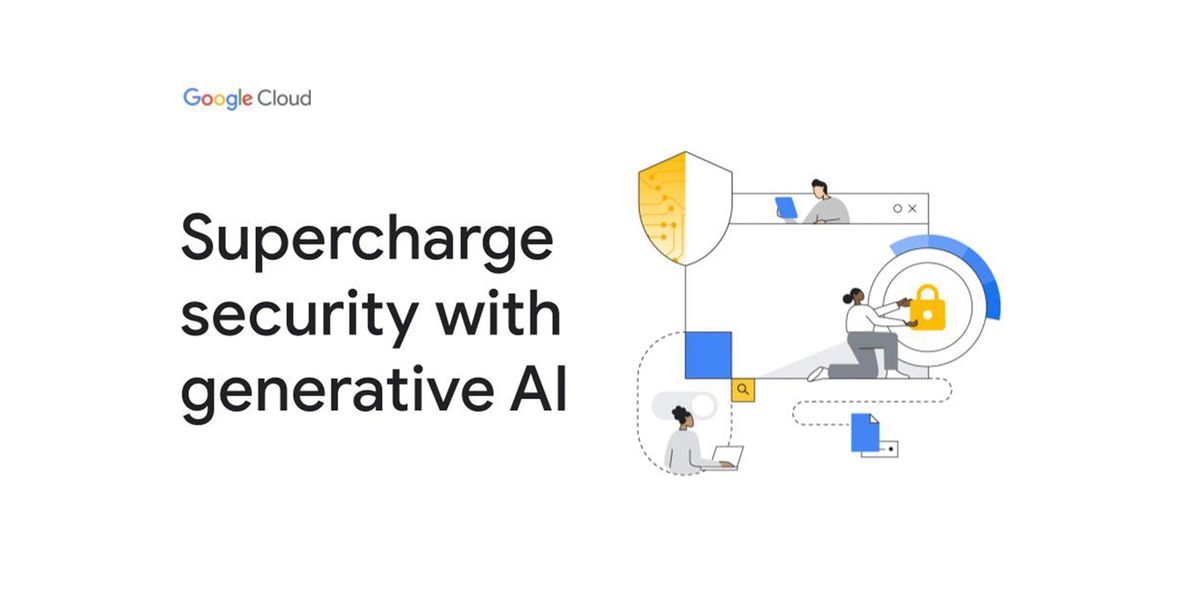Google to integrate generative AI to its cybersecurity efforts

The field of generative artificial intelligence is seeing a new trend in the realm of cybersecurity, and Google is jumping onboard. Recently, at the RSA Conference 2023, Google revealed their Cloud Security AI Workbench, a suite of cybersecurity tools that uses a customized language model for security purposes, called Sec-PaLM.
This model is a specialized version of Google's PaLM model, fine-tuned specifically for security use cases. Google states that Sec-PaLM incorporates security intelligence such as research on software vulnerabilities, malware, threat indicators, and behavioral threat actor profiles. The Cloud Security AI Workbench aims to provide advanced cybersecurity solutions through the use of generative AI technology.
Google's Cloud Security AI Workbench offers an array of new AI-powered tools, including Mandiant's Threat Intelligence AI, which utilizes Sec-PaLM to detect, summarize and address security threats. Google acquired Mandiant in 2022 for $5.4 billion. VirusTotal, another Google-owned property, will leverage Sec-PaLM to help subscribers analyze and comprehend the behavior of malicious scripts.
Sec-PaLM will aid customers of Google's cloud cybersecurity service, Chronicle, in searching security events and communicating with the results in a conversational manner. Meanwhile, users of Google's Security Command Center AI will receive "human-readable" explanations of attack exposure, with Sec-PaLM providing information on affected assets, recommended mitigation measures, and risk summaries for security, compliance, and privacy findings. These AI-powered tools aim to provide efficient and effective cybersecurity solutions for customers.
“While generative AI has recently captured the imagination, Sec-PaLM is based on years of foundational AI research by Google and DeepMind, and the deep expertise of our security teams. We have only just begun to realize the power of applying generative AI to security, and we look forward to continuing to leverage this expertise for our customers and drive advancements across the security community,” Google stated in a blog post.
The Cloud Security AI Workbench's goals are ambitious, especially since VirusTotal Code Insight, the first tool in the suite, is currently only available in a limited preview. Google plans to make the rest of the offerings available to "trusted testers" in the next few months. However, the efficacy of Sec-PaLM in practical usage is still unknown. While the concept of "recommended mitigations and risk summaries" sounds beneficial, it's unclear if the suggestions generated by an AI model are truly more accurate or precise than traditional methods. Nonetheless, Google's Cloud Security AI Workbench aims to provide innovative and advanced cybersecurity solutions through the integration of AI technology.
It's important to note that even the most advanced AI language models can make mistakes and are susceptible to attacks such as prompt injection, which can cause them to operate in unintended ways. While Sec-PaLM is customized for security purposes, it still runs the risk of potential errors and vulnerabilities, just like any other AI language model. The efficacy and limitations of Sec-PaLM will become clearer as it is tested in real-world scenarios.
Google to deploy Generative AI to create sophisticated ad campaigns
Google is also planning to introduce generative AI into their advertising businesses in the upcoming months. Google aims to utilize this technology to create unique advertisements by leveraging materials produced by human marketers. An internal presentation to advertisers seen by the Financial Times revealed that the Alphabet-owned company is pursuing this approach.
“Generative AI is unlocking a world of creativity,” the company stated in a presentation called “AI-powered ads 2023”.
It's not only Google
Despite the potential risks, the tech giants remain committed to advancing their generative artificial intelligence capabilities. Amazon recently announced its latest accelerator program, targeting generative AI startups around the world. This program comes seven years after Amazon's initial accelerator program, which focused on conversational AI in 2016. The new accelerator program, led by Amazon Web Services (AWS), aims to assist early-stage startups in developing and launching their generative AI solutions. The program showcases Amazon's ongoing dedication to pushing the boundaries of AI technology and fostering innovation within the industry.
Advertisement
“behavioral threat actor profiles”
We know how this works at Google and co. This guy isn’t using Chrome, flagged. This other one is blocking cookies ? Flagged ! Adblocker ? Send in the cops !